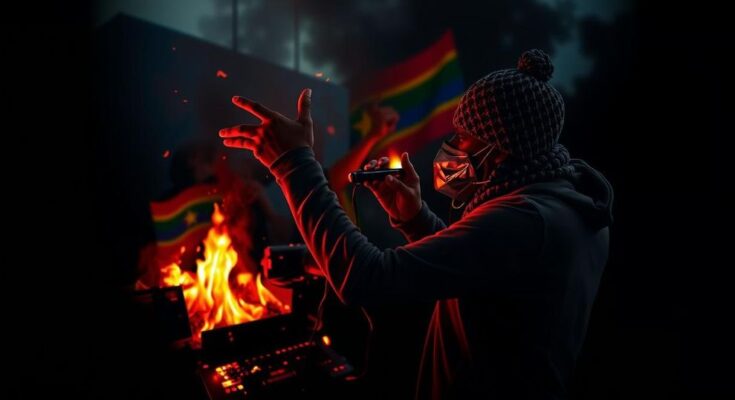The #KeepItOn coalition demands the end of internet shutdowns in Mozambique amid violent protests following disputed elections. Highlighting the constitutional right to freedom of expression and international human rights obligations, the coalition’s appeal stresses the need for open and secure internet access to ensure democracy and uphold civil liberties. Telecom companies are also urged to resist complying with shutdown orders and protect citizens’ rights to communication and information access.
In a powerful call to action, the KeepItOn coalition, representing over 334 human rights organizations globally, is urging the Mozambican government to banish the shadow of internet shutdowns, which have become dangerously common during civil unrest. With the air thick with tension from violent protests after disputed election outcomes, authorities have resorted to stifling communication, employing shutdowns reminiscent of a dark, suffocating fog that quells the voices of dissent and limits citizens’ access to vital information. The coalition emphasizes that such actions not only violate the Mozambican constitution, which ardently guarantees freedom of expression and access to information, but also undermine democracy itself. The recent surge in internet blackouts sparked between October and November 2024 has ignited outrage, with reports citing over 20 casualties from excessive police violence during protests. Five significant instances of mobile internet shutdowns highlight a troublesome pattern — a direct assault on democracy’s lifeblood, which thrives on transparency and communication. It echoes a disquieting refrain of past events, where the November 2023 local election marked the first blackout of its kind, casting shadows over the electoral process and further intensifying calls for accountability and reform. Moreover, the dramatic consequence of these shutdowns is dire: they obstruct communication for voters, journalists, and observers, ultimately skewing the fairness of electoral outcomes. As the African Commission on Human and People’s Rights recently noted, unrestricted access to the internet is quintessential to free, fair elections and the exercise of democratic rights. The implementation of internet blackouts acts not only as a barricade to free expression but a blight on human rights, instilling fear within those who dare to assemble and protest against systematic injustices. Telecommunications companies are under scrutiny, as they hold a unique position in influencing citizens’ rights to communication and access. The coalition calls on providers such as Vodacom, Movitel, and Mcel to resist compliance with unlawful orders and instead pave the way for a transparent and open digital landscape. In this crucial juncture, leaders and stakeholders must foster a digital haven where rights are upheld, and citizens can breathe the fresh air of unrestricted communication without fear of exploitation or oppression. The plight of Mozambique serves as a vivid reminder of the global battle for internet freedom, where the harmony of peaceful assembly clashes with repressive forces seeking to dismantle it. Despite the throes of violence and disillusionment, the clarion call for justice reverberates strong, urging both the government and private sector to protect the rights of each individual, ensuring they are endowed with the critical tools necessary to shape their destinies and advocate for a brighter future.
The backdrop of this urgent appeal lies in Mozambique’s turbulent political landscape, characterized by civil unrest and the adversarial response of local authorities to dissenting voices. Following contested elections, which have led to widespread protests, the government has increasingly resorted to internet shutdowns as a means to suppress opposition and silence critics. The constitution, recognizing the essential rights of expression and information access, stands in stark contrast to these repressive measures, prompting local and international organizations to collaborate in the fight against this alarming trend. The framework of international human rights agreements solidifies the imperative need for unfettered internet access, particularly during elections and protests, where communication plays a pivotal role in democratic engagement and accountability. This juxtaposition between rights enshrined in national and international law versus the harsh realities of governmental control fosters an environment ripe for advocacy and reform.
The escalating trend of internet shutdowns in Mozambique represents a profound violation of human rights, particularly in the context of elections and protests. With an urgent plea for the government to cease these practices, the #KeepItOn coalition underscores the necessity for unrestricted access to the internet as a fundamental pillar of democracy. The call to action extends beyond the government to telecommunications providers, urging them to uphold their ethical responsibilities and resist unlawful shutdowns. It’s a moment for collective accountability, urging both state and corporate actors to recommit to the ideals of transparency and free expression, igniting the hope for a future where all Mozambicans can engage freely in civic discourse without fear or reprisal.
Original Source: www.accessnow.org



